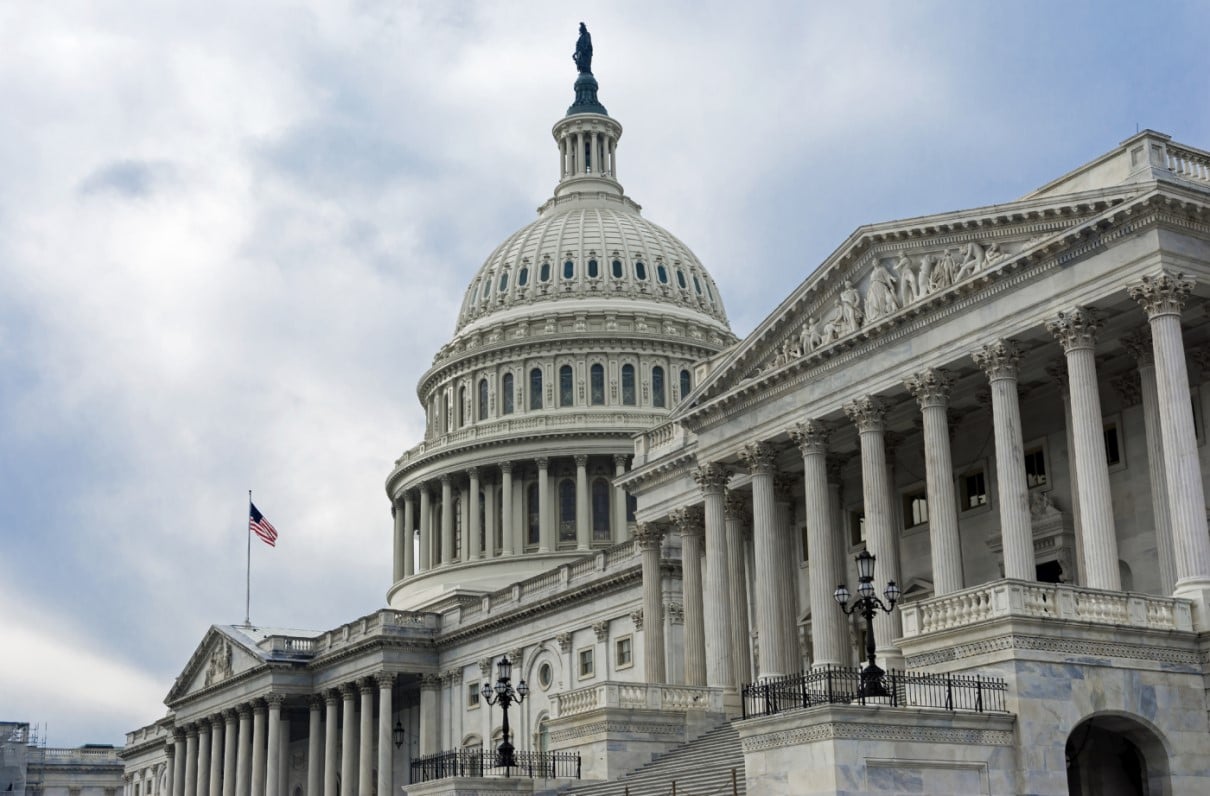The House of Representatives passed its version of the FY 2023 National Defense Authorization Act (NDAA) on July 14 by a vote of 329-101. The legislation Included several key provisions important to MOAA and our members, including:
- A 4.6% pay raise for uniformed service personnel.
- A three-year extension to the limitation of reductions and realignment of military medical personnel and a report on military medical workforce requirement, progress on filling persistent vacancies and the feasibility of increasing civilian positions to address shortages.
- A DoD report on Basic Allowance for Housing (BAH) calculations and a separate report on barriers to homeownership for servicemembers.
- Removal of the Basic Allowance for Housing in eligibility calculations for the Basic Needs Allowance – an improvement over last year’s NDAA.
- An expansion of the licensure reimbursement program for military spouses to include expenses associated with business licenses and business-related fees incurred during PCS moves.
- A DoD study to determine whether compensation for DoD and Coast Guard child development center employees is competitive with similarly trained and qualified public elementary school employees for areas with long waiting lists.
[RELATED: Congress Can Save Billions in DoD Spending … Just by Doing Its Job]
Earlier this month, ahead of the House vote on its version of the NDAA, MOAA sent a letter outlining our support for several key amendments to House leadership. MOAA was pleased to see that all five amendments listed in the letter were included in the final House version of the bill:
- Removal of the 180-day delay for hiring military retirees into the military health care system, to combat nationwide health care shortages and allow continued uninterrupted service to servicemembers, veterans, and beneficiaries.
- Prevention of the enforcement of pre-dispute forced arbitration clauses in any dispute covered under the Servicemembers Civil Relief Act.
- Establishment of a pilot program providing eligible military spouses with a spouse-specific Training Assistance Program focusing on employment services, offering guidance on available health care resources and training in mental health first aid to learn crisis management strategies.
- DoD authority to increase the inflation bonus pay above 2.4% for servicemembers and DoD civilian employees who make $45,000 or less annually to respond to the ongoing economic impact of inflation.
- A study on adding au pairs to the in-home child care fee assistance program, and the expression of a sense of Congress that members of the armed forces who participate in the au pair exchange visitor program should be eligible for assistance.
[RELATED FROM 2020: MOAA Endorses Bill to Help Military Families Find Au Pairs]
MOAA was disappointed that several provisions, including the Major Richard Star Act, were not included in the House version of the NDAA. MOAA will stay engaged with Congress on the Star Act and will continue to pursue concurrent receipt improvements to ultimately ensure full military retired pay and veterans’ disability compensation for all disabled retirees.
What’s Next
What can MOAA members expect next from Congress on the annual defense bill? The Senate Armed Services Committee (SASC) released its version of the NDAA earlier this week. Following the Senate’s floor consideration and vote, key members of the House and Senate will work together in a conference committee to reconcile the two versions of the NDAA. The reconciled bill will be voted on by both chambers before moving to the president’s desk to be signed into law.
As the NDAA process continues, MOAA’s government relations team will stay committed to the inclusion of our legislative priorities in the final version of the bill. To stay informed and to find out how you can make a difference, check in for updates at MOAA’s Advocacy News page and stay tuned for alerts on MOAA’s Legislative Action Center.

